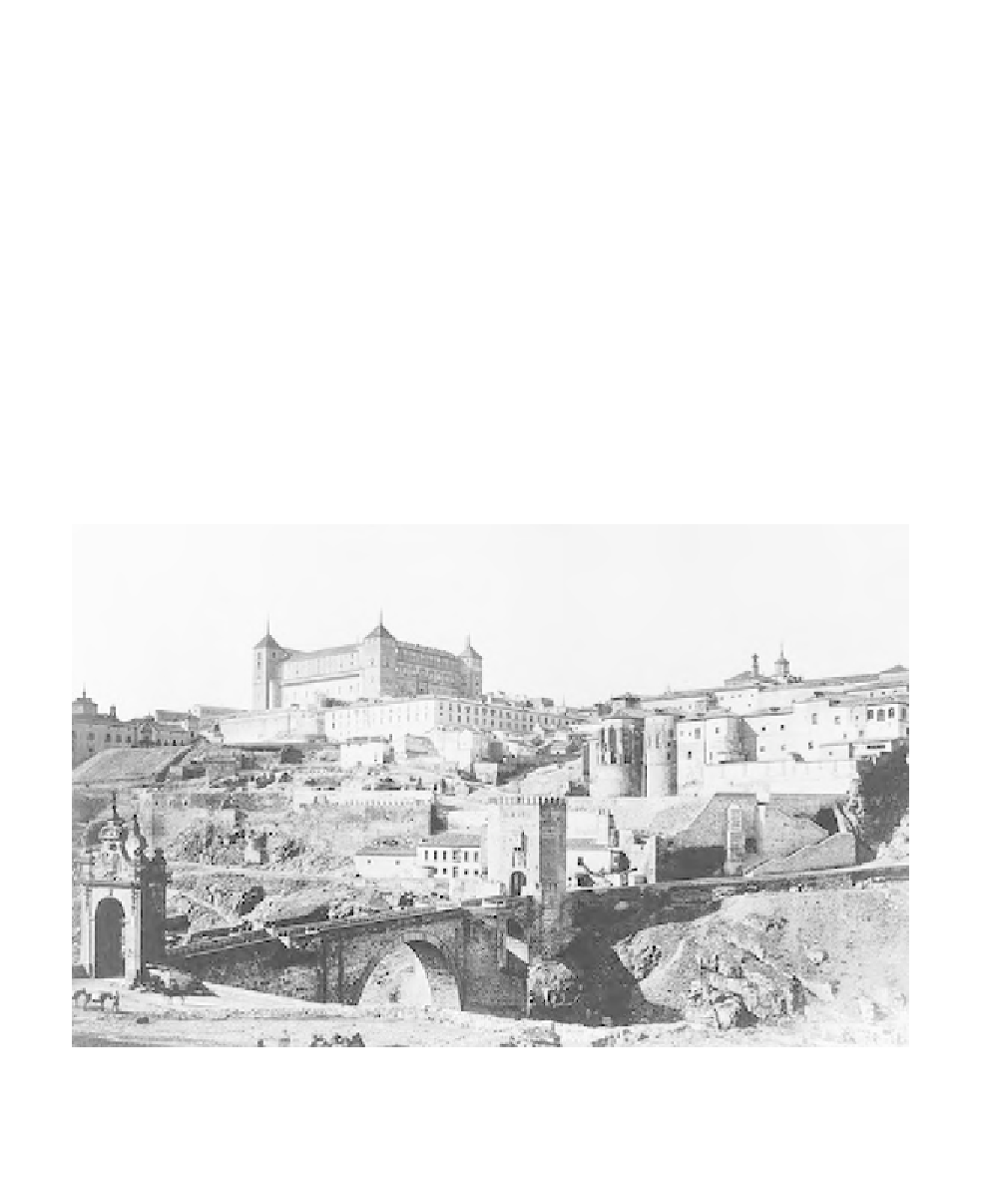Travel Reference
In-Depth Information
that the other man has enjoyed since he is
destined to share the same fate. But the
criminal, who has the single redeeming vir-
tue of loving his father, is spared, and Paulo
ultimately goes to hell for casting aside the
profound Christian truth that God can for-
give any sinner. Paulo may not be as arro-
gant as Don Juan, but he has failed to
acknowledge God's forgiveness, just as Don
Juan has failed to acknowledge the cer-
tainty of punishment for the unrepentant.
In the wide range of his subject matter
and the sheer volume of his production, as
well as his persistent concern with the val-
ues of the Catholic heritage, Tirso de Molina
is representative of the best achievement of
17th-century Iberian drama. With Lope de
Vega and P
EDRO
C
ALDERÓN
DE
LA
B
ARCA
, he
completes a triumvirate of the S
IGLO
DE
O
RO
's greatest dramatists.
Toledo
This city in central Spain stands on a high
plateau surrounded on three sides by a nat-
ural moat of rivers and on the fourth by a
double defensive wall. From ancient times
it has been a fortress and seat of govern-
ment. Its name is derived from the Roman
Toletum,
but the site was occupied long
before the Romans arrived. Capital of the
Visigothic kingdom, Toledo was ruled for
several centuries by the Moors and then
passed into the hands of the the kings of
L
EÓN
and C
ASTILE
(1085). Toledo became
an ecclesiastical as well as political center
View of Toledo from the Alcántara Bridge
(Library of Congress)

Search WWH ::

Custom Search